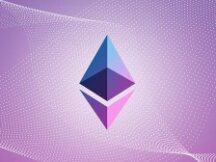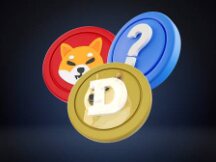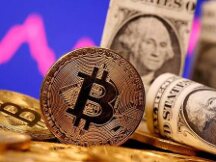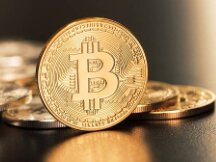Biggest cryptocurrency and blockchain disappointment in 2021
For blockchain technology and cryptocurrencies, 2021 is one of the happiest years of adoption and adoption. From the government of El Salvador to large corporations like Tesla, Goldman Sachs, Bank of America, and Morgan Stanley, many organizations have stepped in to be part of the ecosystem.
However, there are still some issues and situations that confuse cryptocurrency traders and the community as a whole.
US SEC denies VanEck Spot Bitcoin ETF
According to data from Cointelegraph Markets Pro, in October, after the United States Securities and Exchange Commission (SEC) approved ProShares' Bitcoin Futures Exchange Traded Fund (ETF), Bitcoin hit an all-time high of 68,789.63 $ November 10. In terms of natural volume, the first day volume of the ProShares Bitcoin Strategy ETF (market symbol BITO) is the largest of all ETFs and only shows how to profit from the exit of the BTC ETF.
Shortly thereafter, on November 12, the financial regulator rejected Van Eck's request for a Bitcoin-based ETF, causing the price of Bitcoin to drop.
VanEck CEO Jan van Eck is upset that he was turned down.
We are disappointed with the latest news that the US SEC denied our physical Bitcoin ETF today. We believe that investors should be able to gain exposure to BTC through hedge funds and non-futures ETFs is the way to go.
--Jan van Eck (van JanvanEck3) 12 november 2021
After Cameron Winklevoss and Tyler Winklevoss attempted to establish the “Winklevoss Bitcoin Trust” in July 2013, efforts to gain US SEC approval for the ETF site lasted more than eight years. Time has passed and the history of cryptocurrencies has changed, but Gary Gensler's US SEC has yet to approve a Bitcoin ETF.
Bloomberg ETF chief analyst Eric Balchunas commented on the US SEC's denial. Balchunas has always been dissatisfied with the US SEC's denial of ETF applications at multiple sites. It became very popular after the development of new ETFs around cryptocurrencies like Bitcoin and Ethereum.
Ethereum network: fuel costs are not controlled
The ETHereum network became a major overhaul in 2021. The London hard fork pushed Ethereum down a deflationary path with the Ethereum Improving Agreement (EIP) 1559. As of this writing, 1.2444 million ETH has been burned and valued at over $ 4.96 billion.
As a guide to intercept the process of increasing Non-Homogeneous Token (DeFi) processes in blockchains and the development of Ethereum-based Non-Homogeneous Tokens (NFTs) in the cryptocurrency world, Ethereum fuel prices also fell. suddenly flew away. Fuel prices continue to exceed 100 gwei and will continue until 2022. "Gwei" is the smallest in Ethereum, equivalent to 0.000000001 ETH.
On February 23, the grid crude oil price hit an annual high of 373.8 gwei. From May to August, oil prices appear to be under control, but since then a number of highs have affected investors in the DeFi market. This has led various DeFi protocols and providers to choose other blockchain options such as BSC, Solana, Polygon, and others.
To resolve the issue on a regular basis, Ethereum co-founder Vitalik Buterin has requested updates to EIP 4448 and EIP 4490. This is a temporary solution through a method called data sharding, which can reduce the cost of zk-rollup from the blockchain.
But we will also see that demand will go beyond network management and the real impact of innovation on reducing fuel costs.
Solana network: advertisements and DDoS attacks
Solana was launched in April 2019 and has quickly grown into one of the leading blockchain networks with Total Closing Costs (TVL) of nearly US $ 12 billion. The price of SOL, the network's native symbol, has increased nearly 130 times and now the price is around $ 180. The token hit an all-time high of $ 260.06 on November 7. .
However, on December 4 at 13:46 UTC, the Solana network was down for almost six hours. The mainnet block group of the network generated blocks of 53,180,900, causing unrecognizable changes on the blockchain. The blackout drew criticism from many traders and developers who criticized the Twitter network.
DeFi Pulse co-founder Scott Lewis says serum data orders prove that there are no "real consumer orders."
This is not the first time that Solana has experienced a recession this year. Since September 14, the Grape Protocol Declaration of Denial of Service (DDoS) attack on the first exchange interrupted the network for 17 hours from September 14 to 15. DDoS attacks are multiple shared devices or botnets that block a network with malicious traffic to take the network offline.
Shortly after the second period on December 4, the network was subjected to another DDoS attack on December 9, temporarily cutting off the network, but keeping the network online full time.
Although the strike has been criticized for using Solana's design and historic consensus, the developers still seem confident in the network's potential. Solana co-founder Raj Gokal describes the DDoS attack on Twitter.
If you haven't helped the Solana community monitor these metrics, if you lie or lie constantly, if you have competed for the Haters' Ball hats and balls ...
Keep tweeting until you're ready to do the hard work of measuring your cryptocurrency.
leave before.
— Raj Gokalᵍᵐ (@rajgokal) 12 avril 2021
Following the DDoS scandal, Solana's work on channel improvement has seen significant growth in the daily rollout of GitHub. Indeed, from November 12 to December 13, the network overtook Polkadot and Cardano to become the best blockchain network.
Binance Smart Chain Network: Digital Security
Binance Smart Chain (BSC) is a subsidiary of Binance Chain, two blockchains created and managed by the Binance cryptocurrency exchange. BSC was first announced in April 2020 and released shortly thereafter in August 2020.
Since then, the network has grown into the second largest blockchain, after Ethereum, widely used for decentralized applications. According to data from DefiLlama, TVL via DeFi over the network is now worth nearly $ 17 billion. After the bull market peaked on May 10, BSC's TVL hit an all-time high of $ 31.72 billion.
However, the networks and the procedures that run through them have had a negative impact on crime since they were first reported. Below is a list of DeFi protocols that have been subject to security breaches and hacking attacks.
PancakeBunny: Low Interest Loans Cause $ 200 Million Loss
Spartan protocol: vulnerability costs $ 30 million
Uranium Finance: $ 50 million stolen
Meerkat Financial : 31 millions de dollars perdus per Rug Pull
pNetwork: Hackers Attack BTC, Lab $ 12.7
Finances bogged down: bad credit caused $ 3 million in losses
BurgerSwap: Loss of $ 7.2 Million in Security Breach
Belt Financial: Loss of $ 6.3 million
Since the above list is incomplete, it is no exaggeration that hundreds of millions of dollars have been lost in hacks and security breaches during the 18 months of the network's operation. In addition to this insecurity, the exchange company PancakeSwap and Cream Financial have also been subjected to various phishing attacks.
However, the Binance ecosystem is working to address this issue in several ways. A recent effort is the introduction of Project Shield, a security monitoring system that adds an extra layer of protection for users looking to access BEP-20 and ERC-20 tokens on Binance Exchange.
There is so much to look forward to
While these events and issues have caused the community to despair over cryptocurrency in 2021, it is clear that the growth of digital payments is higher than ever.
With the advent of emerging technologies such as NFT, GameFi, and Metaverse, the cryptocurrency industry is exploring the next big event in games, gaming, music, and finance with new developments that will change the state of. the economy.

Scan QR code with WeChat






























